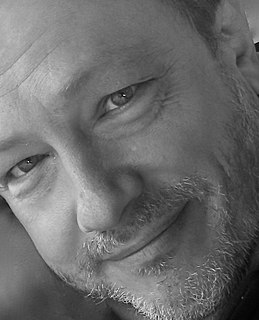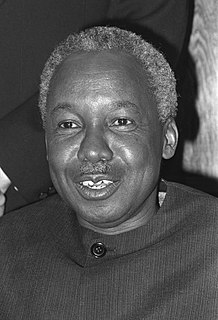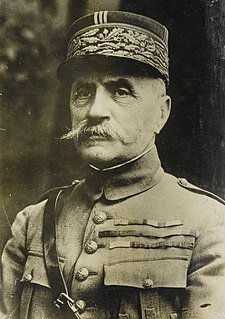A Quote by John Tilbury
It should be pointed out that none of Cardew's works ever gave total freedom to the performer. The instructions were a guide which focused each individual's creative instinct on a problem to be solved - how to interpret a particular system of notation using one's own musical background and attitudes.
Related Quotes
You must believe in your own instincts and your own instincts at any particular time and believe that they were the right ones for any given situation. So, there's no point ever of kind of regretting something because you can't properly remember the exact circumstances in which you were playing out this particular scene. You have to believe in your intuition and your instinct at that moment.
We forget that, although each of the liberties which have been won must be defended with utmost vigour, the problem of freedom is not only a quantitative one, but a qualitative one; that we not only have to preserve and increase the traditional freedom, but that we have to gain a new kind of freedom, one which enables us to realize our own individual self; to have faith in this self and in life.
In these sacred documents are embodied eternal principles that no man, group of men, or nation has the right to withhold from others. Here is our basis for freedom of individual achievement. Our Constitution with its Bill of Rights guarantees to all our people the greatest freedom ever enjoyed by the people of any great nation. This system guarantees freedom of individual enterprise, freedom to own property, freedom to start one's own business and to operate it according to one's own judgment so long as the enterprise is honorable.
Having come into contact with a civilization which has over-emphasized the freedom of the individual, we are in fact faced with one of the big problems of Africa in the modern world. Our problem is just this: how to get the benefits of European society - benefits that have been brought about by an organization based upon the individual - and yet retain African's own structure of society in which the individual is a member of a kind of fellowship.
Freedom is necessary for two reasons. It's necessary for the individual, because the individual, no matter how good the society is, every individual has hopes, fears, ambitions, creative urges, that transcend the purposes of his society. Therefore we have a long history of freedom, where people try to extricate themselves from tyranny for the sake of art, for the sake of science, for the sake of religion, for the sake of the conscience of the individual - this freedom is necessary for the individual.
Among other grand achievements, F. A. Hayek had a remarkable career pointing out the flaws in collectivism. One of his keenest insights was that, paradoxically, any collectivist system necessarily depends on one individual (or small group) to make key social and economic decisions. In contrast, a system based on individualism takes advantage of the aggregate, or 'collective,' information of the whole society; through his actions each participant contributes his own particular, if incomplete, knowledge-information that could never be tapped by the individual at the head of a collectivist state.
Facilitative attitudes (and skills) can help a therapist gain entry into the group Freedom from a desire to control the outcome, and respect for the capacity of the group, and skills in releasing individual expression Openness to all attitudes no matter how extreme or unrealistic they may seem Acceptance of the problems experienced by the group where they are clearly defined as issues Allowance of the freedom of choices in direction, either for the group or individuals particularly in the near future




































